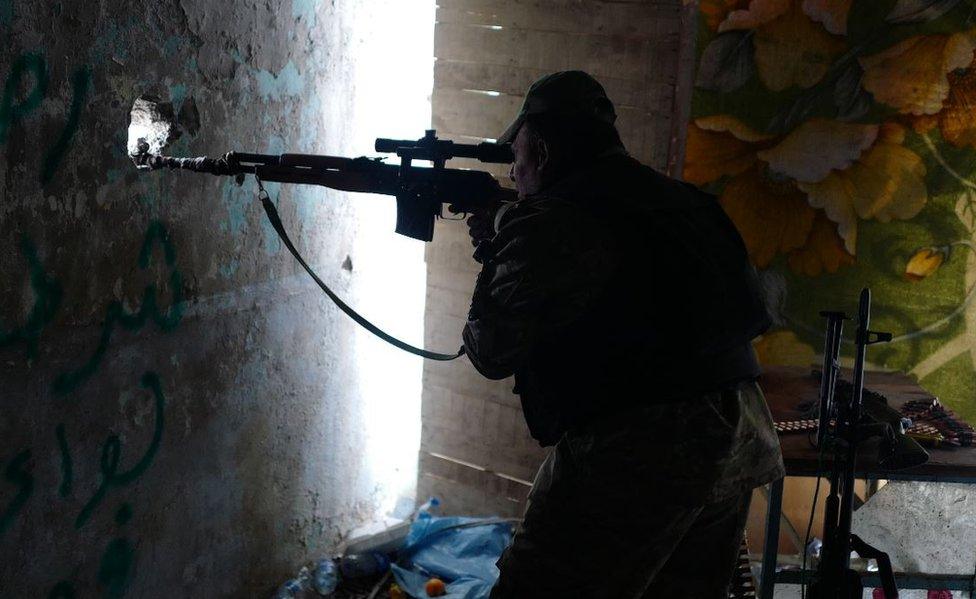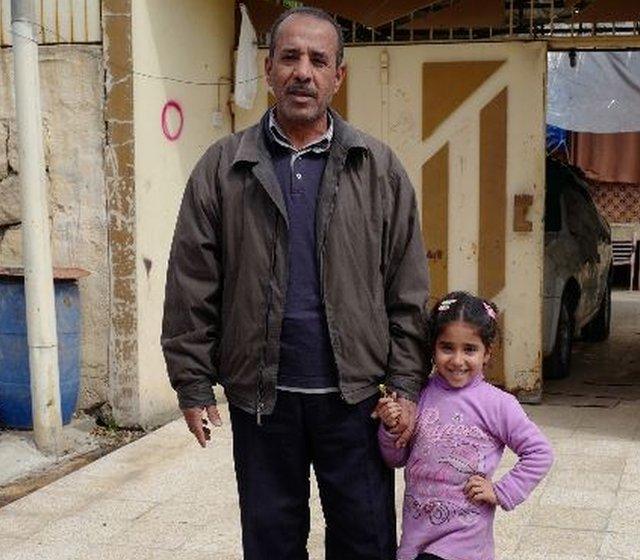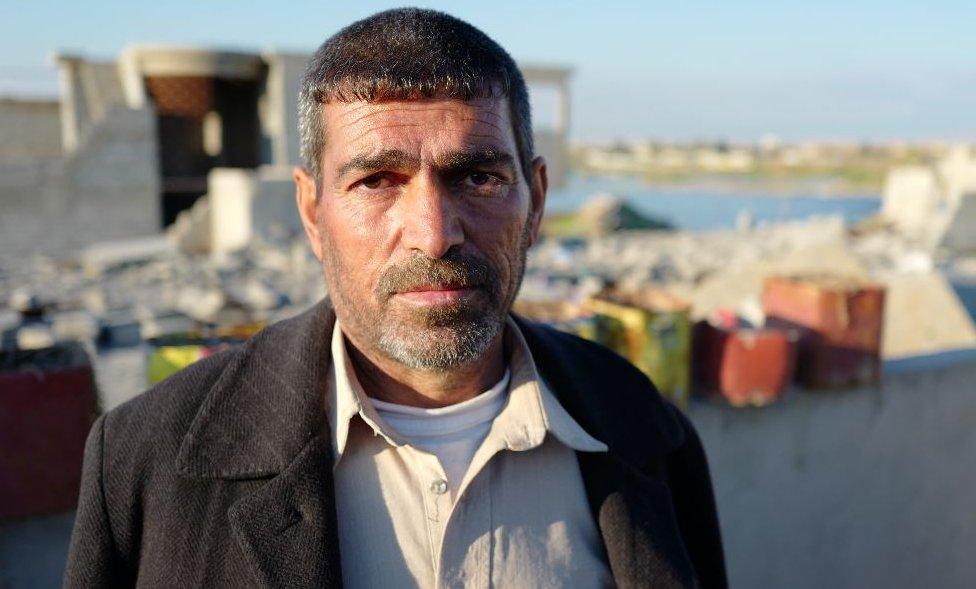Freed from IS tyranny, Mosul Sunnis fear for the future
- Published
Snipers are working with the Iraqi government forces to defeat so-called IS
When the jihadists who call themselves Islamic State (IS) are beaten in Mosul it will be a serious defeat for their organisation. But it will not, magically, bring peace to Iraq.
At the moment the offensive has been stalled by fierce IS resistance in Mosul's Old City. But the jihadists in Mosul cannot survive long-term in the face a formidable coalition, with elite Iraqi forces supported by an American-led air operation, and backed by a lot of political will.
It will not necessarily be the end of "Islamic State" in Iraq, though their pretensions to having a caliphate have been shattered. Last summer IS were driven out of Falluja, near Baghdad. Days later their answer was an enormous bomb attack in the centre of Baghdad that killed hundreds. With their mini "state" in ruins, IS may well leave behind cells to concentrate on big bomb attacks.
There is also the question of all the other conflicts that smoulder and often explode in Iraq. The desire to destroy IS has forced different groups to swallow their differences. The coalition includes elite Iraqi forces, Shia militias with strong ties to Iran, Kurdish peshmerga forces and Sunni tribal fighters. Once IS has been beaten there is a risk that they may turn on each other to fight for the spoils, or that old arguments will re-ignite. Violence runs like a virus through the bloodstream of Iraqi politics.
The Kurds took advantage of the collapse of the Iraqi army in 2014 to seize big swathes of territory that they had coveted for generations. It is hard to see them voluntarily giving it all up.

Once IS has been beaten back from Mosul, there is a risk that other groups fighting in Iraq could turn on each other

Revenge will be a factor. IS jihadists have done a lot of killing in and around Mosul in the last three years. Survivors of their pogroms might want to inflict some rough justice.
Mosul is a Sunni city. The Shia-led government in Baghdad has a long history of ignoring or threatening Sunnis. Some of them here say they were relieved when in 2014 the government army was driven out by a Sunni coalition including tribes as well as IS.
Haji Saad al Jabouri, a 50-something father of five, said he thought it was a Sunni tribal uprising against a bad government until IS jihadists started what he said was a reign of terror, ordering civilians around in the accents of North Africa and Saudi Arabia.
"We used to die a thousand times a day. It was hell, poverty and disease-ridden. It was indescribable. We were so scared we used to hide our children and wives from IS every day," he said.
"People who didn't support Daesh [IS], or pay allegiance to them, or who carried a mobile phone, were hanged all day at traffic lights then killed and burned. They hanged them also on bridges for a month or two until you could see their bones."

Haji Saad al Jabouri said IS launched an "indescribable" reign of terror in Mosul
While there is the same overwhelming relief among newly-liberated Sunnis I have met here, fears about the government and the future surface easily. They worry that Shia leaders in Baghdad cannot - or will not - ditch their old sectarian ways.
The Sunni side is disunited and fractious. Different groups could end up fighting each other. Jabar Qassar Mohammad, once an officer in the army of the old dictator Saddam Hussein, was disgusted with his fellow Sunnis.
"Sunnis are not united. They don't have a big leader. They are materialistic, only care about their own interests. These are the Sunnis. A Sunni would crush you with his feet to get his own interests. There's no cooperation amongst them."

Jabar Qassar Mohammad, an ex-army officer, said Sunnis are uncooperative and materialistic
If the operation in Mosul is going to lead to better and more secure lives for all Iraqis, the government in Baghdad needs to overcome big challenges. One is to show that it can give Sunnis a stake in Iraq. During the fighting care needs to be taken with civilian lives. Survivors need to feel like winners not victims if they are going to build a better Iraq.
Another big fight with IS looms in Syria. The wars in these two unhappy countries could go on for years.
Iraq has been broken by years of war and not just by the fight against IS. Now the government has an opportunity for a bit of a new beginning. But if it cannot offer the Sunnis safety and security then Iraq doesn't have a chance.